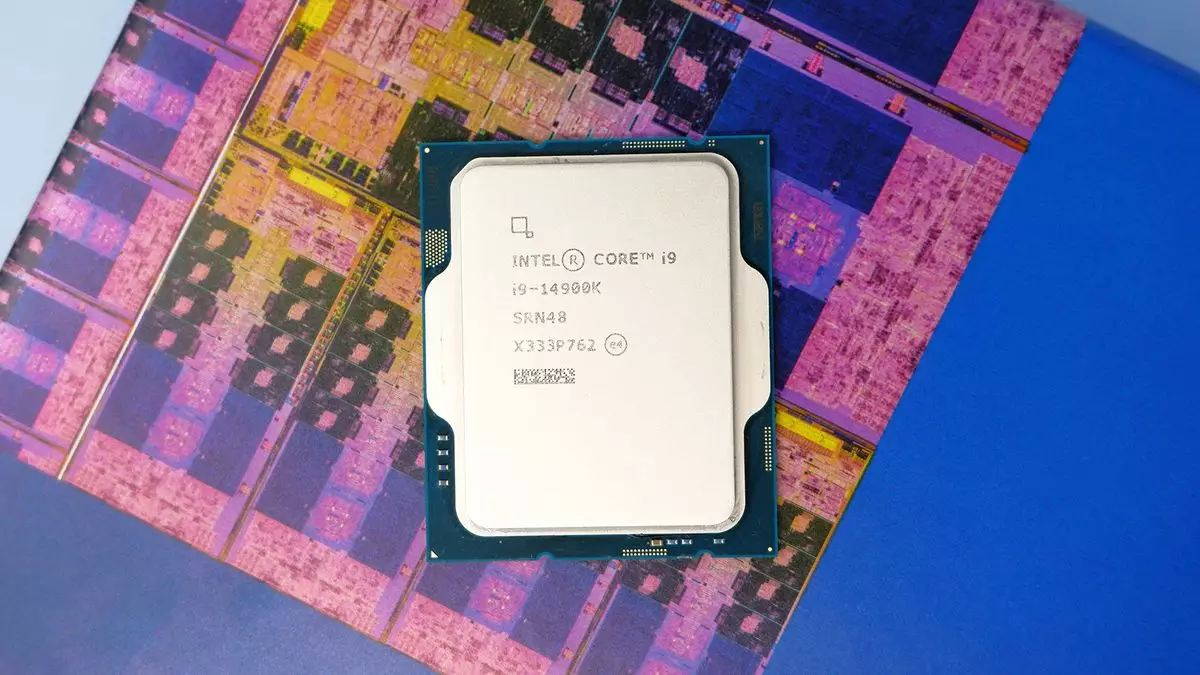In a significant development for the tech giant Intel, a class action lawsuit has been filed in California, thrusting the company into a complex legal battle over its 13th and 14th Generation Raptor Lake CPUs. The plaintiff, Mark Vanvalkenburgh, experienced trouble with the Intel Core i7-13700K he purchased in early 2023, alleging that the product suffered from severe instability and consistent crashing, claims that could have serious implications for the company’s reputation and ongoing operations.
Vanvalkenburgh’s lawsuit paints a troubling picture of not just a single malfunctioning chip but suggests a broader issue affecting many Intel processors sold within the same timeframe. According to the suit, after installing the microcode patch designed to combat these issues, Vanvalkenburgh’s problems persisted—a red flag that might resonate with other users facing similar frustrations. Despite Intel’s assurances that the patches adequately addressed the identified problems, the continued instability suggests a potential corrosion of trust between the company and its customer base.
Notably, the lawsuit contends that Intel was aware of these defects as early as late 2022. The assertion that Intel monitors product performance and user feedback raises the question of corporate responsibility—did they choose to sell potentially flawed products despite knowledge of their issues? If the allegations are substantiated, this implies a significant breach of consumer trust and could lead to penalties that may overshadow the associated financial gains made from the sale of these unsupported products.
It’s worth examining the efficacy of the microcode patches released by Intel. While the company claims to have resolved the issues through multiple updates, this seems to downplay the severity of the problems faced by users like Vanvalkenburgh. Intel’s admission that once the clock tree circuit is damaged, the patch won’t rectify the underlying flaw emphasizes the limitations of software solutions in addressing hardware failures. This sets a precarious stage for the company, suggesting that many of its chips may be operating under a ticking time bomb.
The two-year extended warranty and an improved return policy may provide some solace for affected users, but they do little to alleviate concerns for customers who may feel misled regarding the integrity of their purchased products. This ineffective solution raises profound questions about the accountability of tech giants toward their consumers.
This legal situation is manifest not as an isolated incident but as part of a broader trend reflecting Intel’s ongoing struggles in a highly competitive market. With this lawsuit, the chipmaker—previously a stalwart of the industry—faces challenges that could tarnish its legacy. Reports of high failure rates and crashes not only lend credibility to the claims in Vanvalkenburgh’s lawsuit but also indicate potential long-term repercussions on customer loyalty and brand image.
The fallout from this lawsuit could be severe, particularly as Intel grapples with market share erosion and competition from rivals such as AMD and newer entrants. Should this lawsuit gain further traction and additional customers join the suit, the financial ramifications could be pronounced, especially given Intel’s recent exit from the Dow Jones index, illuminating the company’s struggles.
Moving forward, it will be interesting to witness Intel’s strategy for addressing these allegations. Will the company opt for vigorous defense against the claims and risk extended litigation, or will it seek a swift settlement to mitigate reputational harm? Regardless, the stakes are high, both for Intel and its customers who depend on the reliability of their hardware.
As the legal proceedings unfold, both tech enthusiasts and industry observers will be keeping a close eye on Intel, awaiting developments that will undoubtedly shape the company’s path forward in a tumultuous market. The outcome will not just impact the plaintiffs, but may also redefine the relationship between tech companies and their consumer base, underscoring the crucial importance of transparency and accountability in the sale of technology products.


Leave a Reply